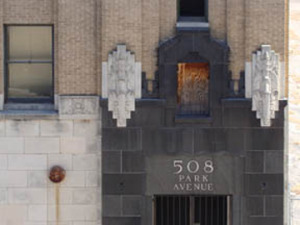Fourth Sunday of Advent, 2014. To subscribe, click here.
Mary said, “My soul magnifies the Lord, 47and my spirit rejoices in God my Savior, 48for he has looked with favor on the lowliness of his servant. Surely, from now on all generations will call me blessed; 49for the Mighty One has done great things for me, and holy is his name. 50His mercy is for those who fear him from generation to generation. 51He has shown strength with his arm; he has scattered the proud in the thoughts of their hearts. 52He has brought down the powerful from their thrones, and lifted up the lowly; 53he has filled the hungry with good things, and sent the rich away empty. 54He has helped his servant Israel, in remembrance of his mercy, 55according to the promise he made to our ancestors, to Abraham and to his descendants forever.” 56And Mary remained with her about three months and then returned to her home. —Luke 1: 46-55
Turning the World Upside Down
Our Advent journey leads us today into the hill country of Judea where we find two pregnant women conspiring to take over the world. I have been thinking this week about John Williams’ description of the difference between the four Gospels: how if you asked them how to get to Dallas City Hall from here, Mark would send you straight down Highway 75 to IH 30, take the Ervay Street exit and you’re there. Get there, get there, get there.
Matthew would take you in a fairly direct route, but he would keep stopping along the way to tell you why each street is named what it is, who they were and why that matters.
John would take you in a space shuttle; or, just answer, “City? What exactly is a city?”
Today, our tour guide is Luke. Luke will not hurry the journey. All around us, the world is getting ready for Christmas, but Luke says, “Wait, let’s walk slowly here and meet some people; not just the people who have  streets named after them, but also the people sleeping on cardboard sheets under the eves of old buildings. Let’s take a tour through Deep Ellum and Oak Cliff, Swiss Avenue and that renovated Park Street warehouse across from First Presbyterian where Robert Johnson recorded the blues. Luke would say, listen to the songs, both music and lyrics.
streets named after them, but also the people sleeping on cardboard sheets under the eves of old buildings. Let’s take a tour through Deep Ellum and Oak Cliff, Swiss Avenue and that renovated Park Street warehouse across from First Presbyterian where Robert Johnson recorded the blues. Luke would say, listen to the songs, both music and lyrics.
Luke would say that we find God and the Gospel not just in the people who had streets named after them: Herod, Emperor Augustus, and Quirinius governor of Syria, but with these two women: Mary, a young girl from a backwater town in Galilee, and her cousin Elizabeth, the wife of a priest and a woman who describes her life so far as one in which she has endured the disgrace of her people because of their childlessness. Both of them are country people, far from the seat of power; and yet, we find them here singing about turning the world upside down.
More accurately, of course, we hear them singing about God working through them to turn the world upside down.
Luke began this Gospel by telling Theophilus that he has set out to write “an orderly account.” And, Luke does that: this happened, then that happened, then another thing. But Luke is not opposed to some poetry along the way.
In an oppressive system like the late first century Roman empire, poets are dangerous. Those who attack the Empire directly, through editorials and pamphlets or armed uprising will be dealt with directly.
But how will the Empire strike back against poetry and song? How will the Empire suppress metaphors that seep into the cracks of power and slowly degrade the political infrastructure, and reveal its weakness and fragility?
When Luke gets to the part about Mary and Elizabeth’s pregnancies, he revels in the metaphor: the world is pregnant with revolution. God has struck the match, lit a candle, and started the fire not with a battle cry, but with a baby’s cry.
To all outward appearances, the cry has not yet been heard. When Luke’s first readers looked around at the world, Rome still ruled with a brutal hand. If God was at work in the world, it was not altogether visible.
And yet, Mary sings in the past tense.
With Jesus growing inside of her, the victory is won, she sings, as only a poet can say: the hungry have been fed; the oppressors have been thrown down; the lowly have been exalted.
In Mary’s song, we hear the promise of God to anyone who lives under oppression: that all unjust systems of power are doomed.
Pregnancy, of course, is uncomfortable. Or so I have been told.
Shannon Kershner told the story of her parents coming to visit their grandchildren shortly before Christmas one year, and bringing a Christmas story book for Shannon’s five-year-old.
Her mother and her daughter began reading it together. It told a very sweet version of the Christmas story–beginning when the Angel Gabriel came to tell Mary what was going to happen in and to her. The book said, “and when the angel told Mary she was going to have the baby Jesus, Mary was very happy.” At that point the five-year-old stopped her grandmother: “Well, actually, Nini, that’s wrong. Mary was afraid.”
It’s the kind of reply you get, I suppose, from a child whose mother and grandfather are Presbyterian ministers.
And of course, five-year-old Hannah was right. Mary was afraid and perplexed, and she ran with haste from her parents to her cousin Elizabeth. She ran out of there as quickly as she could and went to the only place she thought might be safe; after all, Gabriel had told her that Elizabeth also was pregnant with a child miraculously conceived.
And so, when Luke brings us to the blessing from Elizabeth and the song of Mary, “from now on, all generations will call me blessed,” the blessing comes into a world full of fear. In Mary’s pregnancy, “the hopes and fears of all the years are met in thee tonight.”
Where do your hopes and fears meet? In pregnancy, yes, for some families now. In the waiting and hoping for all to go as planned.
And, for other families, the hopes and fears meet in a hoped-for pregnancy and the fear that it will not happen.
And, for some, hopes and fears meet in the hope for a better life for their children, and the fear that they cannot provide it.
And, for all who work for the justice Mary proclaims in her song, the hope is clear, but the fears are real, even in the face of love that casts out all fear. Love does cast out all fear, but not all at once, and not on our timetable.
Today our youth group gathered around the Advent wreath and lit the candle of Joy. The song of Mary, even when sung in the minor key that foreshadows the birth pangs to come, bursts with a joy so unrepressed that we’re not entirely comfortable with it.
Isn’t it a bit too exuberant for grownups? Isn’t exuberance over a world into which God is breaking in with justice a bit premature in a world where wars rage and, well, Ferguson, Missouri.
A friend told me that when he was driving around after a snow storm, he saw an old man with a piece of cardboard for a sled, riding down a hill with a huge grin on his face and his hands raised above his head. He was all by himself, no children or grandchildren in sight.
 If it had been a young person, it wouldn’t have been such an unusual sight. But, as we grow older, even if we can preserve our bodies from broken bones, our joy somehow gets mashed down. An adult, a grown man or woman, laughing or singing in unrestrained joy, becomes an unusual sight.
If it had been a young person, it wouldn’t have been such an unusual sight. But, as we grow older, even if we can preserve our bodies from broken bones, our joy somehow gets mashed down. An adult, a grown man or woman, laughing or singing in unrestrained joy, becomes an unusual sight.
The self-exposure, the fear of looking like a fool, the fear of getting hurt emotionally if not physically, maybe that’s part of it.
But the other part is that as we grow older, we see the world’s sorrows. We lose people we love to disease and death. How can we have joy in a world in which teenagers walk into a school and gun down children and teachers; a world in which war claims not just those who abuse power, but the innocent, the children caught in the crossfire, and the would-be peacemakers who go hungry?
How can you read the news and be joyful? How can you live for even a handful of decades and hold on to joy?
Here’s Luke’s bottom line: Joy is not the same thing as happiness, or fun, or pleasure. All of those depend on good conditions, health, happy family, financial security, lots of toys. Joy is something different.
Joy comes from the awareness that we are walking a path God has set before us, and that God walks it with us.
Joy doesn’t happen when we get what we want. Did Mary want what happened to her? It is much more likely to happen when we do not get what we want and we find ourselves laughing instead of crying, because God’s ideas are so much better than ours, only we have a hard time seeing that until our own wishes have crashed and burned.
Joy in the face of loss–that’s how you know God is present–because nobody else knows how to make life out of death. No one else knows how to come into a dark room and turn on all the lights, surprising everyone inside with the last thing any of them ever expected.
The hopes and fears of all the years are met in thee tonight. The Gospel story of this pregnant moment tells us that our fears, however real, can be met in the cold and darkness of winter, by the light of Christ.
The light has come into darkness. And the darkness will not overcome it.
Thanks be to God.
If you would like your free copy of “Cheaper Than A Seminary Education,” a 45-page e-book on reading difficult passages of Scripture in context, sign up for my weekly newsletter here. If you decide it’s not for you, you may unsubscribe at any time.
